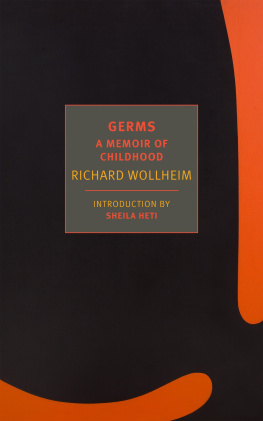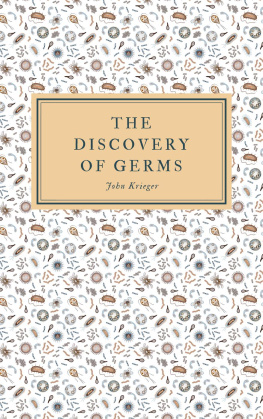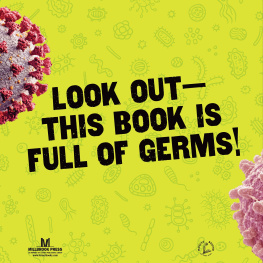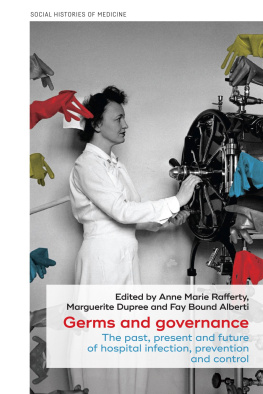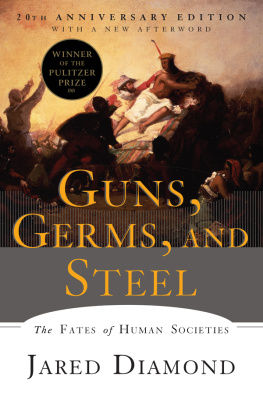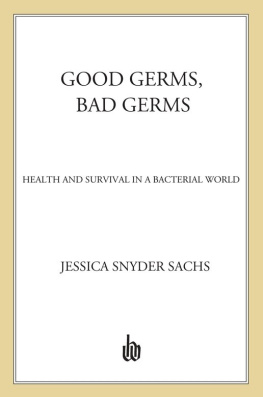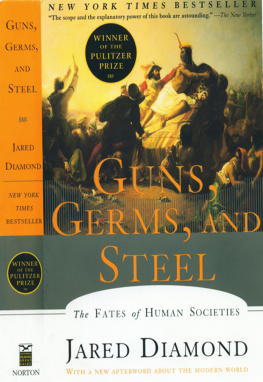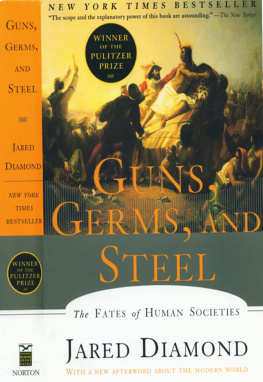Richard Wollheim - Germs
Here you can read online Richard Wollheim - Germs full text of the book (entire story) in english for free. Download pdf and epub, get meaning, cover and reviews about this ebook. year: 2021, publisher: New York Review Books, genre: Detective and thriller. Description of the work, (preface) as well as reviews are available. Best literature library LitArk.com created for fans of good reading and offers a wide selection of genres:
Romance novel
Science fiction
Adventure
Detective
Science
History
Home and family
Prose
Art
Politics
Computer
Non-fiction
Religion
Business
Children
Humor
Choose a favorite category and find really read worthwhile books. Enjoy immersion in the world of imagination, feel the emotions of the characters or learn something new for yourself, make an fascinating discovery.
- Book:Germs
- Author:
- Publisher:New York Review Books
- Genre:
- Year:2021
- Rating:3 / 5
- Favourites:Add to favourites
- Your mark:
- 60
- 1
- 2
- 3
- 4
- 5
Germs: summary, description and annotation
We offer to read an annotation, description, summary or preface (depends on what the author of the book "Germs" wrote himself). If you haven't found the necessary information about the book — write in the comments, we will try to find it.
Germs — read online for free the complete book (whole text) full work
Below is the text of the book, divided by pages. System saving the place of the last page read, allows you to conveniently read the book "Germs" online for free, without having to search again every time where you left off. Put a bookmark, and you can go to the page where you finished reading at any time.
Font size:
Interval:
Bookmark:

RICHARD WOLLHEIM (19232003) was born in London and educated at Westminster School and Balliol College, Oxford. During the Second World War, he saw action in France and was briefly captured by the Germans; starting in 1949, he taught philosophy at University College London, and he would later hold positions in the United States at Columbia, the University of California at Berkeley, Harvard, and the Graduate Center at the City University of New York, among other institutions. Throughout his career, Wollheim was keenly interested in the relationship between philosophy, psychoanalysis, art, and mind; he was not only a major aesthetician but one of the significant art critics of the latter half of the twentieth century. In 1992, Wollheim became the president of the British Society of Aesthetics, a post he held until his death. His published works include Art and Its Objects, Painting as an Art, The Mind and Its Depths, On the Emotions, The Thread of Life, and the novel A Family Romance.
SHEILA HETI is the author of eight books of fiction and nonfiction, including the novels Ticknor, Motherhood, and How Should a Person Be?, and the story collection The Middle Stories. She lives in Toronto.
GERMS
A Memoir of Childhood
RICHARD WOLLHEIM
Introduction by
SHEILA HETI
NEW YORK REVIEW BOOKS

New York
THIS IS A NEW YORK REVIEW BOOK
PUBLISHED BY THE NEW YORK REVIEW OF BOOKS
435 Hudson Street, New York, NY 10014
www.nyrb.com
Copyright 2004 by the Estate of Richard Wollheim
Introduction copyright 2021 by Sheila Heti
All rights reserved.
Originally published in Great Britain by The Waywiser Press in 2004.
First published by New York Review Books Classics in 2021.
Cover image: John Golding, Untitled, 1967; courtesy John Golding Artistic Trust
Cover design: Katy Homans
Library of Congress Cataloging-in-Publication Data
Names: Wollheim, Richard, 19232003, author. | Heti, Sheila, 1976
Title: Germs : a memoir of childhood / Richard Wollheim ; introduction by Sheila Heti.
Description: New York City : New York Review Books, 2021. | Series: New York Review Books classics
Identifiers: LCCN 2020000979 (print) | LCCN 2020000980 (ebook) | ISBN 9781681374963 (paperback) | ISBN 9781681374970 (ebook)
Subjects: LCSH: Wollheim, Richard, 1923 Childhood and youth. | IntellectualsGreat BritainBiography.
Classification: LCC CT3990.W65 A3 2021 (print) | LCC CT3990.W65 (ebook)
| DDC 941.0092 [B]dc23
LC record available at https://lccn.loc.gov/2020000979
LC ebook record available at https://lccn.loc.gov/2020000980
ISBN 978-1-68137-497-0
v1.0
For a complete list of titles, visit www.nyrb.com or write to:
Catalog Requests, NYRB, 435 Hudson Street, New York, NY 10014
Germs: not only the dirty little things you cant see but also seeds. In his sensuous and melancholic memoir, Richard Wollheim attempts to collect the seemingly insignificant, lost little kernels of his lifethe most powerful impressions of his younger selfthat then germinated and made the man. It is a book written by a philosopher who is interested in how the seemingly random yet indelible experiences from early age might, when recalled and assembled, constitute evidence of the inevitability of ones future attachments. Yet no matter how perfectly one recalls the past, the first cause always remains a mystery: Why were the things that touched us so powerfully those things, and not others? This question hangs over every memoryexquisitely unanswered, and unanswerable.
Wollheim was a man whose passionsphilosophy, art, and, in particular, painting, and an examination of the mind and self through the lens of psychoanalysisled him to write some of the twentieth centurys most eloquent essays about aesthetics. To read these alongside this memoir is to recognize both a gap and a connection. His professional development and philosophical accomplishments are not really part of this book, which stops when he is still a young man; but reading the two together does give a sense of how a person blooms into greater complexity through the years, while always retaining the inclinations and sensitivities of their first self. His childhood fascinationswith the beauty of words, with categorizing, with secret namesare surely the seeds of a writer, and in particular, a writer who will become interested in thinking about thinking. The pleasure he takes in being pampered, sick, and slothful is an ideal disposition for someone whose adulthood will be spent inside reading, lying on a couch or in bed. Even his professed inability, in childhood, to differentiate between men and women and his early confusion over what makes a man a man, and a woman a womanseems to point to someone who would eventually theorize fluidly on the beauty of art, which is categorically neither male nor female, or is perhaps neither and both at once.
Germs is concerned with the conditions of growth. It is easy for people to sentimentalize childhood as a sunny place, but for Wollheimromantic but not sentimentalthe worlds rare joys were contrasted by an atmosphere that was gray, cloudy, and solitary. This feeling is perhaps best crystallized when he writes of a mood from which I have never learnt to escape altogether, and to which I readily fall victim on autumnal nights and spring evenings: fierce, overbearing loneliness giving way to a suffocating togetherness, the two separated by no more than the shutting or the opening of a front door, or the climbing of a staircase, or just the turning of a key in an innocent enough lock.
This is a book about looking back, but also about how hard it is to look back. There must be overbearing loneliness to encountering oneself as a child, who has become so remote and strange, yet there is also a suffocating togetherness in making this encounter, for who could be closer?
Wollheims father was a prosperous Jewish theatrical producer and something of a dandy, which resulted in many colorful characters passing through the familys life, foreign actors, diseuses, dancers, composers of music for cabaret, and yet the younger Wollheim seemed to live in a distressingly private world of his own, in which he was made miserable by the sight of sunlight after rain, and was ever sensitive to the slightest irregularity in his body. He was at a remove from the adults except when admiring them from afar, or else experiencing humiliation, as when he overheard a mezzosoprano from Vienna whom he took to be an ally remarking to his parents about his unfortunately large ears.
It is hard not to feel affection for the handsome, dark-eyed boy with the brooding forehead and prominent eyebrows who stares back at us from the photographs in this book and who, despite having every material comfort, bore the anxiety of the chronically deprived, so much so that even writing of his fathers chauffeur he recalls the distance that Allens manliness put between him and me, and then between me and all men, a fundamental feeling of inferiority that no advantages could overcome.
The delicate beauty of this memoir is the result of its prevailing atmosphere of sadness and fog, in counterpoint with the most glittering sentences, surely some of the more beautiful surfaces in English prose. Wollheim writes about the name Charrell, the surname of two brothers, friends of his father, and loving it as one of those Central European names, like Putschi, or Czarkas, or Knize, which seemed, as is said of some wine, magically to fill the mouth. He writes about the futile, solitary, acid tears of children. He describes with unusual romanticism the beauty of clothing and the vanity of men. I can think of few writers who so gracefully capture the fineness of mens dress and their secret pride at their own natural gifts. There is Allen arriving at work in his cap and chauffeurs suit, whose bicycle slowed to a halt, and, with his left foot still planted firmly down on the pedal... swung the right leg up, up and back over the saddle, and then, for a few seconds, held it stretched out behind him, totally stiff, parallel to the ground, the blue serge held neatly in place by a black bicycle clip, which encircled the turn-up of the trouser-leg.... How I loved the majesty of that outstretched leg, held rigid in all weathers. Yet this working-class man is no less exquisite than, in the Savoy Hotel, the debonair figure of the Prince of Wales, wearing a light grey double-breasted suit, and holding in one hand a black cigarette holder... he straightened himself up, he stuck his cigarette holder between his teeth, and both hands flew up to adjust the large knot of his silver tie, which protruded from the famous cut-away collar of his shirt. Momentarily assured of his appearance, he paused, before mistakenly, and comically, entering the ladies room.
Font size:
Interval:
Bookmark:
Similar books «Germs»
Look at similar books to Germs. We have selected literature similar in name and meaning in the hope of providing readers with more options to find new, interesting, not yet read works.
Discussion, reviews of the book Germs and just readers' own opinions. Leave your comments, write what you think about the work, its meaning or the main characters. Specify what exactly you liked and what you didn't like, and why you think so.

